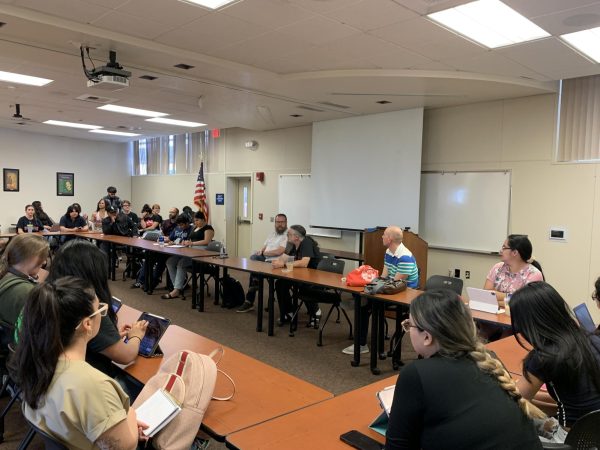Rudy Salas helps prevent scams
California State Assembly member Rudy Salas explains different scams to senior citizens.
October 4, 2017
California State Assembly member Rudy Salas discussed why senior citizens are the main target of scammers and how they can protect themselves from being victimized at a public forum held at St. John’s Baptist Church on Sept. 28.
Salas explained that the main reason seniors are the main targets is because, often, they are too polite, have a lack of knowledge, are less likely to report a crime, and tend to have decent credit.
Non-seniors can also be potential victims of scams, according to Salas. Mail scams and online scams are the most common tactics used to lure younger generations into this modus of theft.
The most common scam is the Pacific Gas and Electric scam, which is a type of scam that tells you that you did not pay your electricity bill. The other most common type is a telephone scam. This type of scam will usually ask for personal information like date of birth and credit card information over the phone.
According to the other speaker, Alysen Gelines, the fear of going to jail is what pushes other people to get involved in this type of scam. It is better to not make a snap decision and do a bit of research before taking any actions.
The last common type of scams is door-to-door scams. This type of scam includes non-licensed contractors that offer items for home improvement, like solar panels and smoke alarms. If really interested in a product, make sure to do research before buying it and make sure that sales people have a permit to sell items door-to-door.
What could possibly happen after a scam? It could lead to a loss of money, potential identity theft – if personal information was given, and other con-artists can open new credit cards.
Gelines mentioned to report the scam to the law enforcement if victimized and request a “credit freeze.” Also, if one’s identity is stolen, they should file a complaint with the Federal Trade Commission.













